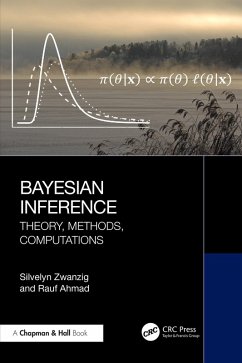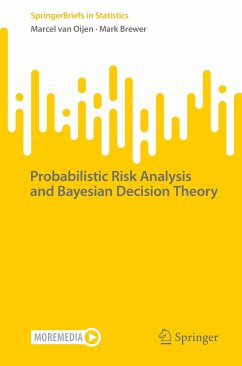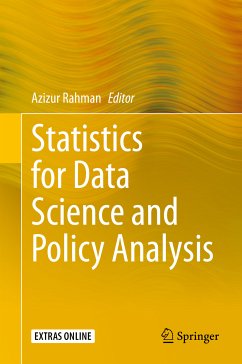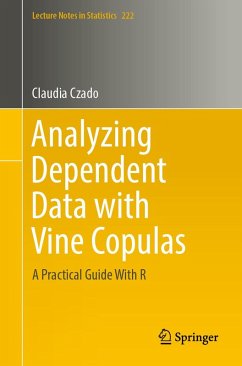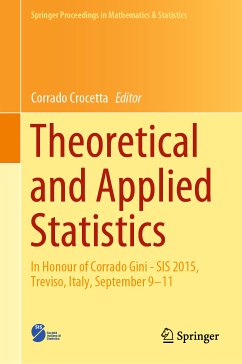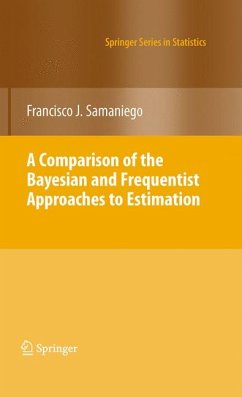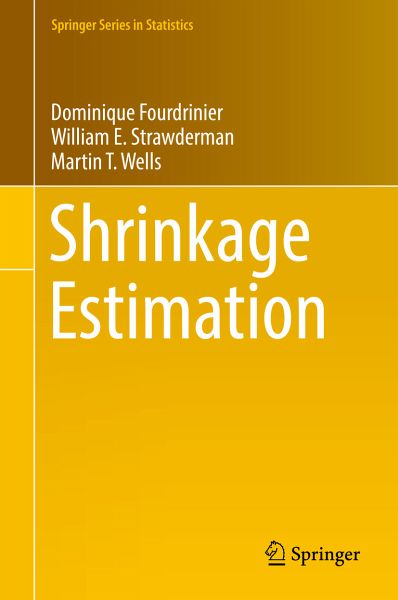
Shrinkage Estimation (eBook, PDF)
Versandkostenfrei!
Sofort per Download lieferbar
112,95 €
inkl. MwSt.
Weitere Ausgaben:

PAYBACK Punkte
56 °P sammeln!
This book provides a coherent framework for understanding shrinkage estimation in statistics. The term refers to modifying a classical estimator by moving it closer to a target which could be known a priori or arise from a model. The goal is to construct estimators with improved statistical properties. The book focuses primarily on point and loss estimation of the mean vector of multivariate normal and spherically symmetric distributions. Chapter 1 reviews the statistical and decision theoretic terminology and results that will be used throughout the book. Chapter 2 is concerned with estimatin...
This book provides a coherent framework for understanding shrinkage estimation in statistics. The term refers to modifying a classical estimator by moving it closer to a target which could be known a priori or arise from a model. The goal is to construct estimators with improved statistical properties. The book focuses primarily on point and loss estimation of the mean vector of multivariate normal and spherically symmetric distributions.
Chapter 1 reviews the statistical and decision theoretic terminology and results that will be used throughout the book.
Chapter 2 is concerned with estimating the mean vector of a multivariate normal distribution under quadratic loss from a frequentist perspective. In Chapter 3 the authors take a Bayesian view of shrinkage estimation in the normal setting. Chapter 4 introduces the general classes of spherically and elliptically symmetric distributions. Point and loss estimation for these broad classes are studied in subsequent chapters. In particular, Chapter 5 extends many of the results from Chapters 2 and 3 to spherically and elliptically symmetric distributions.
Chapter 6 considers the general linear model with spherically symmetric error distributions when a residual vector is available. Chapter 7 then considers the problem of estimating a location vector which is constrained to lie in a convex set. Much of the chapter is devoted to one of two types of constraint sets, balls and polyhedral cones. In Chapter 8 the authors focus on loss estimation and data-dependent evidence reports.
Appendices cover a number of technical topics including weakly differentiable functions; examples where Stein's identity doesn't hold; Stein's lemma and Stokes' theorem for smooth boundaries; harmonic, superharmonic and subharmonic functions; and modified Bessel functions.
Dieser Download kann aus rechtlichen Gründen nur mit Rechnungsadresse in A, B, BG, CY, CZ, D, DK, EW, E, FIN, F, GR, HR, H, IRL, I, LT, L, LR, M, NL, PL, P, R, S, SLO, SK ausgeliefert werden.
Alle Preise in Euro und inkl. der gesetzl. MwSt. | Innerhalb Deutschlands liefern wir preisgebundene Bücher versandkostenfrei. Weitere Informationen: bitte hier klicken
Support
Bitte wähle dein Anliegen aus:
Rechnungen
Bestellstatus
Retourenschein
Storno



